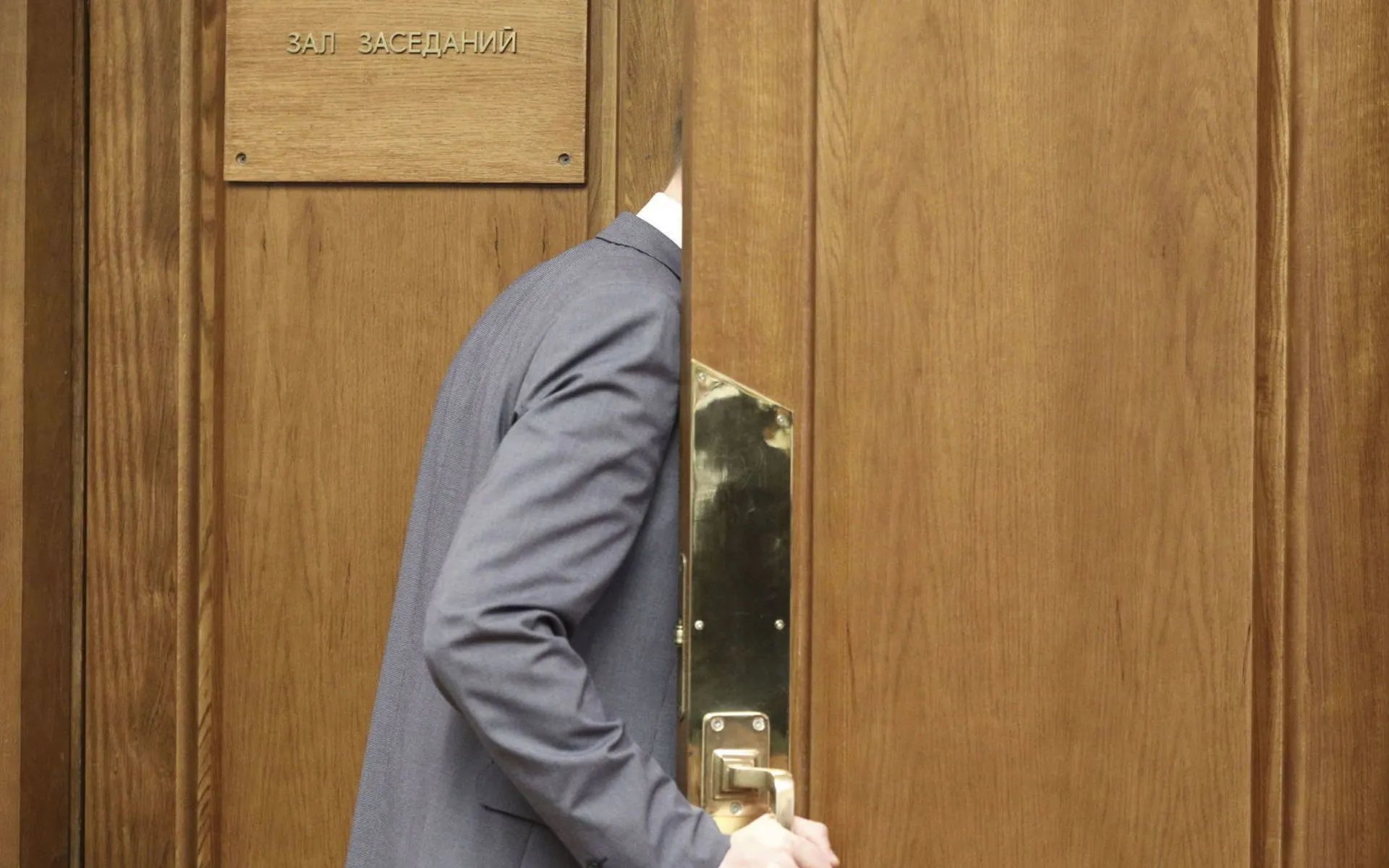This Week’s Highlights
2021 starts with another dramatic expansion of state measures designed to suppress Russian civil society and independent journalism — we explain what this means in practice; the failure of authorities to manage winter tourism fuels COVID-19 numbers; plus, our economic analysis exposes that many Russians are working longer hours for less pay.
**Want to get the full story? Click the links below for full-length articles in Russian. **
Expansion of Russia’s Foreign Agents Laws, Explained
Russian civil society and independent journalists are suffering the biggest attack on their work in a decade. As if Russia’s foreign agents’ law weren’t oppressive enough, lawmakers met right before the winter holiday to pass another expansion of the measures - barely a year after the previous one. Russian President Vladimir Putin signed the package into law on December 30. We previously explained the new set of restrictive measures. This week we break down how exactly they will impact Russian civil society and independent journalism.
THIS IS WHAT A RUSSIAN GOVERNMENT CRITIC NOW BRACES FOR. Life hasn’t been easy for Russian organizations that voice criticism of the authorities. Now the state is expanding these same repressive measures against any individual. Those receiving funding for political activities from abroad can be labeled ‘foreign agents,’ as can folks who get foreign scholarships, grants, or compensated for attending a conference abroad. Organizing a protest or a rally is also a major red flag. Anyone working with a political NGO or with public associations will also be labeled ‘foreign agents’ if they receive any kind of support from abroad. A new set of measures prohibit foreign links and collaborations for journalists, as well.
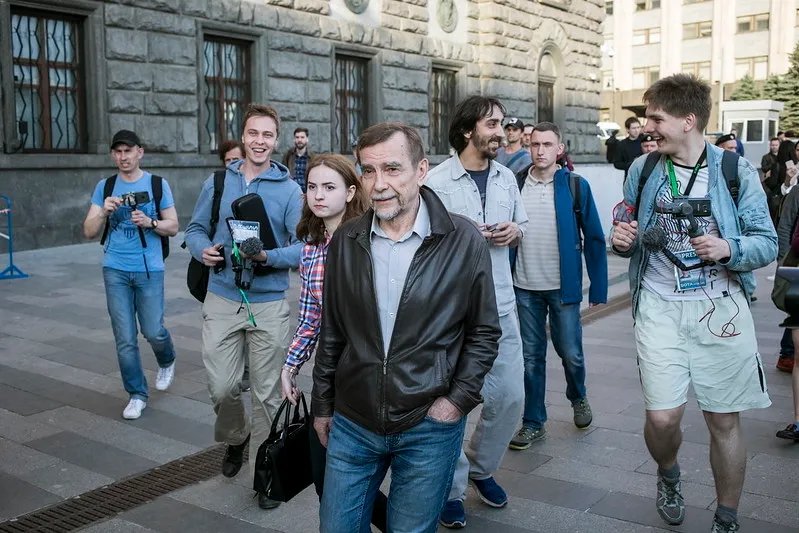
THE ARBITRARY NATURE OF RESTRICTIONS. If you are a Russian citizen and are qualified to be a foreign agent, you must now register yourself with a state-run database. If you fail to do so, you will pay a hefty fine, do community service, or even go to jail for up to two years. Since the new measures are so broad and definitions are so flexible, it can be hard for someone to be 100% sure in advance if they fit the criteria. This allows the authorities to apply the measure to whoever they want arbitrarily and at any random moment.
DESIGNED WITH KREMLIN CRITICS IN MIND. Legal experts tell us that authorities plan to apply these new measures selectively to target government critics. Officials can also use it to pressure journalists investigating officials, including the officers who poisoned Russian opposition leader Alexei Navalny.
“The legal wording of these measures is extremely broad, and that always leads to arbitrary applications. Virtually anyone can be dragged into court,” Russian political scientist Alexander Kynev tells us.
“Anyone involved in elections, no matter in what capacity, will be under attack,” adds Alexander Verkhovsky, director of the SOVA Center for Information and Analysis, a Russia-based research non-profit.
A SNEAK PEEK. The new set of measures has just kicked in. But there’s already a backlog of names of high-profile Russians who were labeled as ‘foreign agents’ under the previous law’s expansion, adopted in late 2019. Authorities placed the prolific human rights activist Lev Ponomarev on the list, as well as well-known independent journalists Lyudmila Savitskaya and Sergei Markelov. Daria Apakhonchich, an artist from St. Petersburg, who worked with Pussy Riot, is also there.
“THE WORDING OF THE NEW DOCUMENT IS SO INCOMPREHENSIBLE AND CONFUSING that neither I nor my colleagues, nor even professional lawyers, can understand how to implement it. And the results of this will inevitably be difficulties in our work, colossal fines and, ultimately, the criminal prosecution of human rights defenders, journalists, and public activists,” explains Lev Ponomarev in a column for Novaya Gazeta. He argues the law will also allow the ruling United Russia Party to crack down on critics ahead of crucial elections.
ONE OF OUR JOURNALISTS ENDED UP ON THE REPRESSIVE LIST. Sergei Markelov is our regional journalist from Petrozavodsk. No one contacted him from the government to inform him about his new status as a ‘foreign agent.’ He learned about it from colleagues. But now, anyone who runs Markelov’s work must include this disclaimer: ‘This message was created and distributed by a Russian individual acting as a foreign media agent.’ “On December 28, I posted a photograph of my wife and me on Instagram with the caption “Kissing on Red Square.” Soon after that, I learned that I was a foreign agent. Now I wonder if the caption should be changed to “My wife is kissing a foreign agent,” Markelov says sardonically.
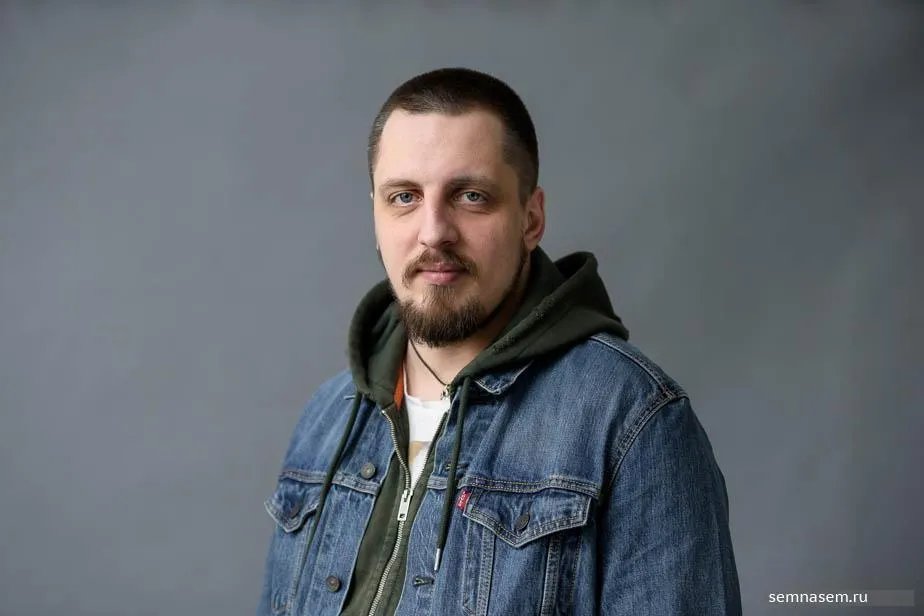
THE KREMLIN’S MESSAGE to Russia’s people is unambiguous, says Kirill Martynov, Novaya Gazeta’s political editor. You better not do anything against the government. Don’t get involved in volunteering or independent media. Don’t dabble in social or educational projects. We will find out, and you will get the New Year’s gift of being added to the foreign agents’ list. Dissent in any form is prohibited.
BACKSTORY. The concept of a 'foreign agent' first appeared in Russian legislation in 2012 as amendments to Russia's nonprofit law. They stipulated that nonprofit organizations that receive foreign funding and participate in political activities must identify themselves as 'foreign agents.' But the definition of 'political activity' is very broad, meaning that it extends to a wide variety of organizations, including environmental or animal rights groups, that aren't engaged in explicitly political activity. Meanwhile, domestic funding in Russia is limited, and the Russian state wouldn't give grants to many of these organizations anyway due to their work's critical nature. These organizations are forced to seek support abroad and risk being labeled a ‘foreign agent’, leaving them open to harassment and intimidation.
**Read our deep dive into the new amendments to the foreign agents’ law here; Lev Ponomarev’s analysis of the new amendments here; Sergei Markelov’s story of learning that he is ‘a foreign agent’ here; and, read Kirill Martynov’s analysis of the politics underpinning the foreign agents’ law here. **
Winter Tourism is Killing Russians
As the winter tourism season ramps up, the Murmansk region in Arctic Russia is experiencing a significant spike in both the number of tourists and the number of cases of Covid-19. This week our local correspondent Tatyana Britskaya reports how a new deadly outbreak traces itself to local authorities’ incompetence.
Поддержите
нашу работу!
Нажимая кнопку «Стать соучастником»,
я принимаю условия и подтверждаю свое гражданство РФ
Если у вас есть вопросы, пишите [email protected] или звоните:
+7 (929) 612-03-68
VACATIONING LIKE THERE’S NO TOMORROW. Russia is still experiencing one of the world’s highest Covid-19 rates. But the Russian ski resorts keep operating as if the pandemic doesn’t even exist. In Kirovsk and Apatity, ski resorts near Murmansk, absolutely everything is overbooked. The region is exploding with tourists, reports Britskaya. Not only skiing is overbooked, tours for northern lights hunters have never seen so many clients. Locals are posting photos from the "stone beach" - an inaccessible seashore dotted with round stones that look like dinosaur eggs. Usually, between 5 to 10 people go there a day. Now there are easily 150. People are hastily installing bunks in their apartments to accommodate incoming tourists.
WHAT PRECAUTIONS? At first, the authorities announced that all tourists would be required to have a negative Covid-19 test before they arrived in the region. But then they quietly forgot all about it. Tourists can now come and go as they please without any regulation at all. As a result of this lack of public health policy, the Covid-19 outbreak in the Murmansk region is out of control. Moreover, local authorities actively contributed to the worsening situation by misguiding the tourists.
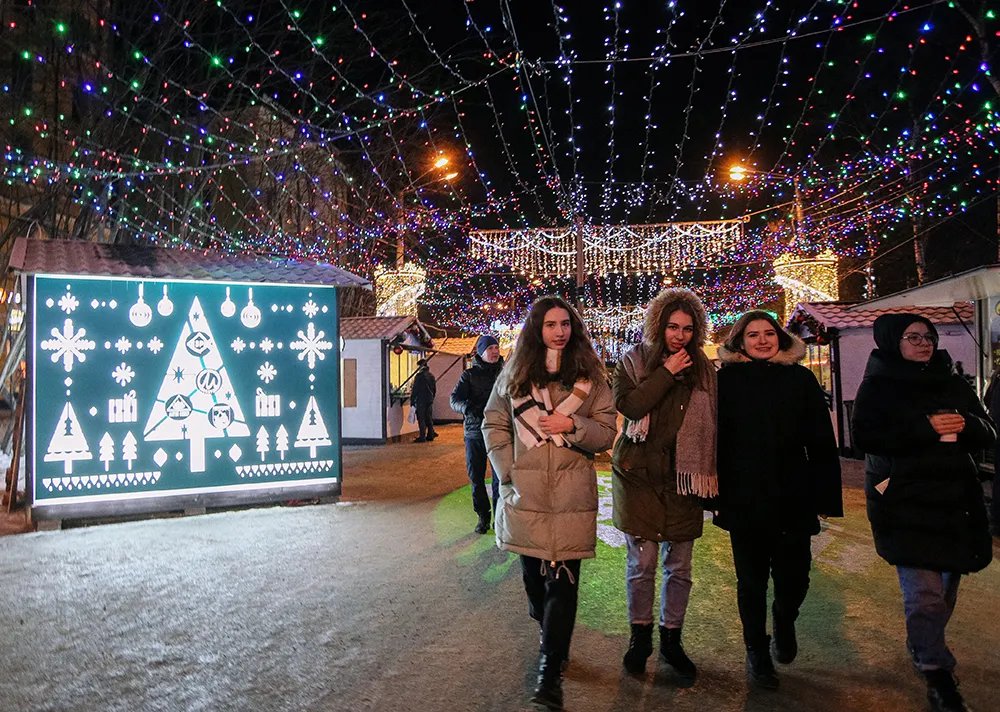
“The image of a joyful city untouched by ‘the plague’ was promoted without sparing any expenses. The regional budget dedicated millions of rubles to funding various luminous constructions in the center of Murmansk, including a skating rink. A couple of dozen fair stalls were built one next to the other, as if there was no Covid-19. People crowded in lines, and no one wore a mask because they were out on the street. Hand washing and temperature taking were nowhere in sight,” Britskaya reports.
AUTHORITIES DO NOT DISCLOSE THE REAL NUMBERS, BUT EVEN THE DOCTORED DATA LOOKS TERRIBLE. A sparsely populated region now has the third-highest number of Covid-19 deaths in Russia. In the region’s capital of just 300,000, at least three people die from coronavirus every day — but the real number is quite likely much higher.
BACKSTORY. Throughout the course of the pandemic, Russia’s official Covid-19 statistics have been faulty. We resorted to using innovative data techniques to get a better sense of the real numbers. For example, we’ve examined over a decade of data from Moscow’s municipal registry office and spoke with independent experts for an investigation exposing that Russian officials severely underreported the coronavirus death toll back in May. Meanwhile, Russian journalists reporting on the real mortality rate could face up to five years in jail. Novaya Gazeta initially found relatively reliable data in only about 10 regions of Russia, most of them with low infection rates. Our data analysis unit looked at other indicators to assess the severity of the epidemic. For example, we looked at whether the number of online searches for coronavirus-related symptoms has risen.
**Read our correspondent’s full report from Murmansk here. **
Russians Work More, Earn Less
There’s a common misconception that Russians spend a lot of their time taking vacations and enjoying life. But economists point out that Russians work a lot. In fact, there are very few countries where the average resident works more hours per year than in Russia. Nevertheless, most people aren’t making very much money, and their incomes have been stagnating or collapsing in recent years.
ALL WORK. The average Russian works around 1,972 hours each year. The only countries where people work more are Mexico (2,148 hours), Costa Rica (2,121 hours), and South Korea (1,993 hours). Meanwhile, more than 21 million people in Russia are living below the poverty line and 60% have no savings at all. The state-defined minimum wage in Russia is currently around $165 a month. Incomes have been on the decline for the past seven years and analysts predict that the pandemic will make Russian citizens 10% poorer than a decade ago.
BUT NO PLAY. According to Russian recruitment experts’ estimates, more than half of mid-career Russians do not have enough time for their personal life. Work consumes all of their time. On the whole, the Russian population is highly educated. But the World Bank notes that there is very little return on investment when it comes to education in Russia. A lot of knowledge and skills do not guarantee that you’ll get a higher salary.
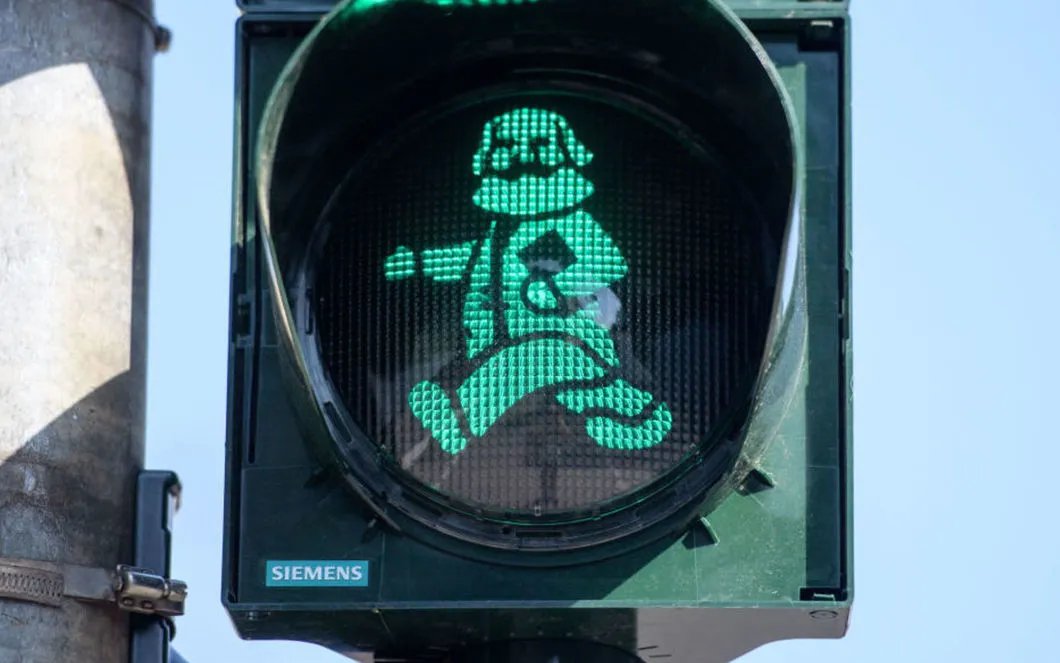
EXPLOITATION OF RUSSIANS IS THE REAL DRIVER OF THE RUSSIAN ECONOMY. According to the World Bank, only 20% of Russia's wealth comes from natural resources, while a full 46% comes from human capital. In other words, the Russian economy is built less through natural resources than through the underpaid and overexploited labor of its citizens. But what happens when you can barely enjoy the fruits of your work? It might be best to talk to the Russian ruling elites about that. Last year we wrote about how unevenly the economic growth benefits are experienced around the country, where 1 percent of wealthy Russian citizens controls 60 percent of the country’s financial assets.
RIGGED SYSTEM. In this week’s opinion piece our economics columnist Dmitry Prokofiev argues that it doesn't matter how much you work in the country where welfare is never a priority for the government: “Every time Russians go away for New Year's holidays, taking 12 days off between December 31 to January 11, bosses argued that it would be nice if people worked a little harder. In fact, we work a lot, but we earn very little.” Talking about the need to work and study and hope that your professional achievements will be recognized just does not make sense in Russia, he adds: “if the top levels of society are interested in increasing your wealth, you will get rich, even if you work only 29 hours a week like they do in the Netherlands. Otherwise, you can work at least sixteen hours a day and there will still be no results.”
BACKSTORY. Regular citizens in Russia are struggling even more than usual due to the coronavirus pandemic. While most countries threw unprecedented amounts of money to support their pandemic-stricken economies, the Russian government has remained obsessed with austerity. As millions of Russian saw their jobs erased by the lockdowns and their incomes plunged, the Kremlin kept saying 'nyet' to anti-crisis bailouts and pushed Russians to borrow more. Even some provincial economies started to collapse. A lot of people are suffering economically. We wrote about how some of the most impoverished citizens line up to receive packages of expired food, and impoverished pensioners are forced to dumpster dive. Real wages are falling even as the rich get richer. Russia introduced a poverty reduction plan in 2018, but the country’s poverty rate has actually grown since then.
**Read our columnist Dmitry Prokofiev’s analysis of Russia’s long working hours and economic woes here. **
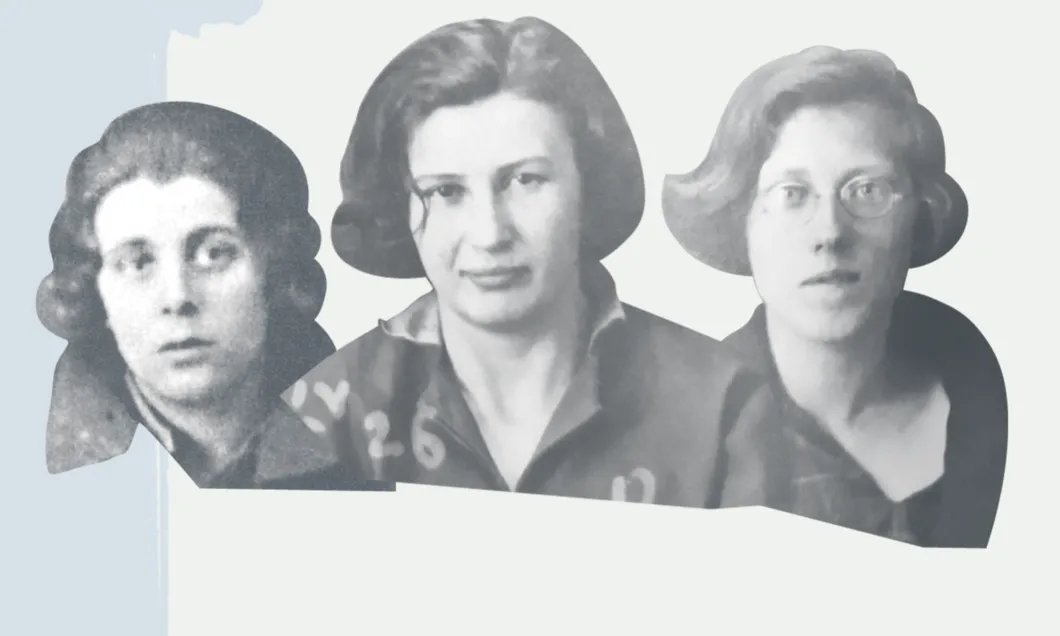
Other Top-Stories Russia Has Been Reading
- THE GIRL SCOUTS OF RUSSIA
One of the most popular stories among our readers this week was a special project about the rehabilitation of Russian Girl Scouts. Many of them were arrested and imprisoned in the 1920s when the newly established communist regime was strengthening its control over the country. On the night of April 23, 1926, 24 girl scouts were arrested in Moscow. They were high school and middle school students, and eleven of them were the children of professors. The communist authorities took the kids to the infamous Lubyanka prison. Novaya Gazeta interviews one of the children of a Girl Scout and finds out how his mother’s 1964 rehabilitation in the eyes of the law changed his life. We also broke down the history of the Russian Girl Scouts, from their inception to their prohibition and persecution.
Поддержите
нашу работу!
Нажимая кнопку «Стать соучастником»,
я принимаю условия и подтверждаю свое гражданство РФ
Если у вас есть вопросы, пишите [email protected] или звоните:
+7 (929) 612-03-68
